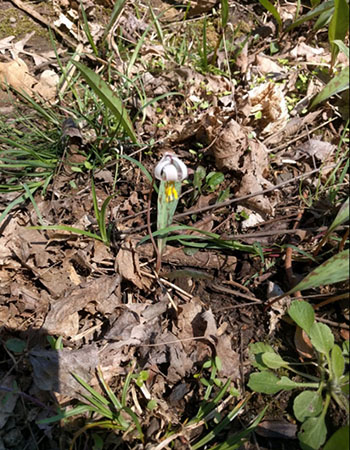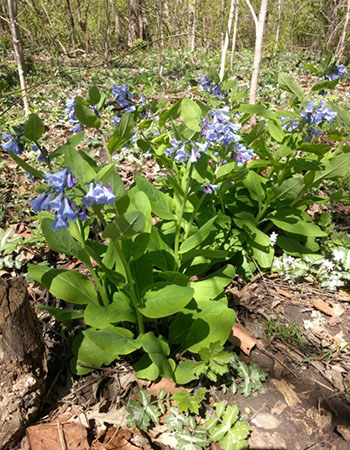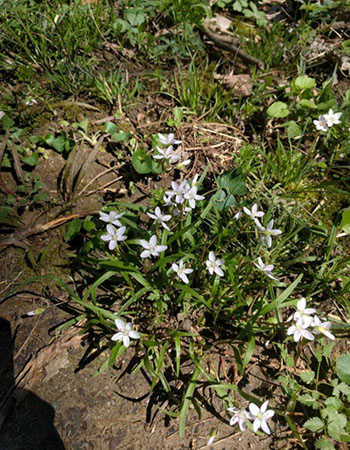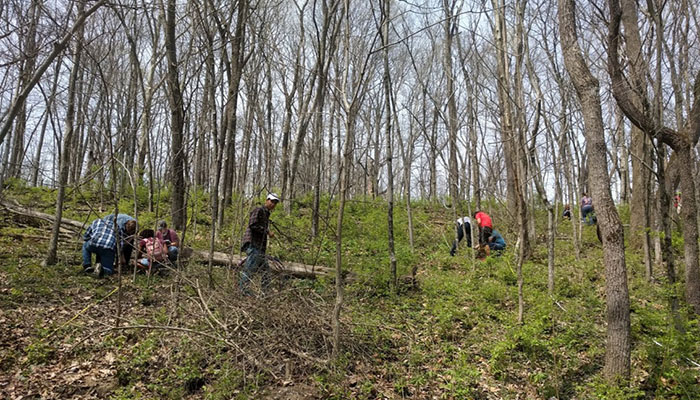Courses
The following courses, offered by Purdue University, regularly use the Reserve for educational activities:
Conservation Biology (Biol. 483)
Professor Ximena Bernal
This course provides an introduction to the application of ecological principles to environmental issues. It introduces fundamental ecological theory and empiricism, and demonstrates their application to practical issues concerning effects of environmental change, at each level of organization from the individual to the ecosystem.
Ecology (Biol. 585)
Professor Ximena Bernal
This is a general course in population and community ecology. Beginning with a review of natural selection, topics include physiological, behavioral, and life history adaptations of animals and plants. We also focus on the determinants and consequences of biotic diversity. Emphasis is on basic principles, but the applied consequences are not far in the background.
Field Ecology (Biol. 591)
Professor Catherine Searle
This course is an interactive approach to understanding strategies for testing ideas about the organization and evolution of ecological systems under natural conditions. Emphasis is on the role of comparative and experimental field studies in the development and testing of ecological principles, especially at the population and community levels of organization, with an eye toward developing models useful for conservation. The course also requires that each student conducts their own independent field project, and many of them do these projects at the Ross.
Here are several recent projects:
- "Evolution of Communication through Predation", by Emily DeFries (PDF: 625KB)
- "How Forests Respond to Rivers", by Andrew Ramirez (PDF: 1.70MB)
- "Small Streams with a Big Impact", by Reid Prindle (PDF: 140KB)
- "Where is the grass really greener?", by Billy Simek (PDF: 7.66MB)
Evolution of Behavior (Biol. 592)
Professors Jeff Lucas and Esteban Fernández-Juricic
This course treats animal behaviors as adaptations, driven by natural selection. Most of the course therefore deals with the behavior, and especially the social behavior, of animals in natural settings, a field generally termed "behavioral ecology". Field exercises in observing animal behavior are conducted at the Ross Reserve. We attempt to familiarize students with current field research projects by Purdue faculty and graduate students; some students use this course as a springboard to participate in such projects.
Animal Communication (Biol. 595)
Professor Jeffrey Lucas
Topics in this course include the physics of sound- and light-signal production, propagation and reception of signals, the use of communication as a means of information transfer, and the evolution of signaling systems.
Ecological Statistics (Biol 595)
Professor Esteban Fernandez-Juricic
This course covers topics that are useful for successfully designing and analyzing statistically observational and experimental studies in ecology, animal behavior, evolutionary biology, forestry, wildlife sciences, fisheries, etc. Datasets collected from the Ross Reserve will be used in this course to illustrate and reinforce statistical methods.
Sensory Ecology (Biol. 595)
Professors Jeffrey Lucas & Esteban Fernandez-Juricic
This course covers the adaptive significance of sensory information as it relates to ecological interactions in animals. Topics include an overview of sensory systems, aspects of predator-prey relationships, sexual selection, communication, perception of environmental cues, and animal movement patterns.
Principles of Plant Biology (Bot 111)
Professors: Gordon.G McNickle (co-taught with Mike Mickelbart, and Damon Lisch)
The overall objective is to provide the students with a solid foundation in essential concepts in plant biology in order to better prepare them for more specialized study Part of the course is about principles of ecology and evolution, which include two labs done at the Ross Reserve (community ecology and net primary production).



